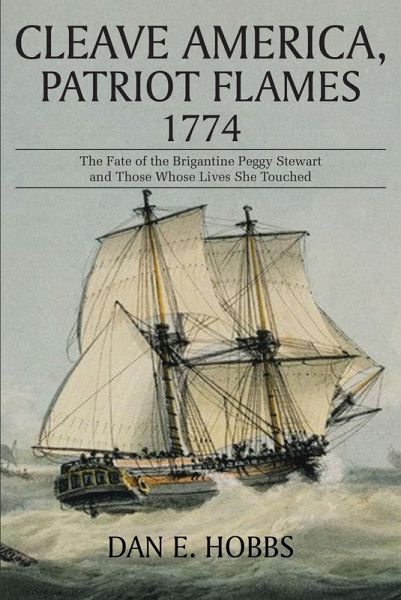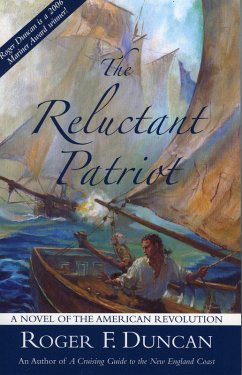
Cleave America, Patriot Flames 1774 (eBook, ePUB)
The Fate of the Brigantine Peggy Stewart and Those Whose Lives She Touched
Versandkostenfrei!
Sofort per Download lieferbar
7,99 €
inkl. MwSt.
Weitere Ausgaben:

PAYBACK Punkte
4 °P sammeln!
The year 1774 was a sea of turbulence in America. The brigantine Peggy Stewart sailed in this sea laden with a cargo of unbridled hatred and undying love. The tides of social change ebbed and flowed while the winds of newfound faith pushed those who had to cleave unto this ship to uncertain destinies. At a critical time for those touched by the Peggy Stewart, a simple message of faith reached across the Atlantic to transform despair into hope. Cleave is a word in English that though spelled the same has diametrically opposite meanings. The definitions of the word cleave found in modern diction...
The year 1774 was a sea of turbulence in America. The brigantine Peggy Stewart sailed in this sea laden with a cargo of unbridled hatred and undying love. The tides of social change ebbed and flowed while the winds of newfound faith pushed those who had to cleave unto this ship to uncertain destinies. At a critical time for those touched by the Peggy Stewart, a simple message of faith reached across the Atlantic to transform despair into hope. Cleave is a word in English that though spelled the same has diametrically opposite meanings. The definitions of the word cleave found in modern dictionaries validates that it is indeed contradictory: cleave--to divide or cleave--to cling. This word is an apt description of today's American society. Ask almost anyone today about the political mood of the United States, and they will begin to describe how America is deeply divided United States. Many believe we have unreconcilable differences as never seen before. This novel seeks to contest this belief and to tell an old American story when our political cleave, a division, led to dreadful violence, right or wrong, but ultimately to a cleave, a clinging together and eventually the birth of a United States of America. What is often lost to most in a simple narrative of pre-Revolutionary history is the turmoil up and down the Atlantic Coast preceding and following the Tea Party in Boston. Our ship, the brigantine Peggy Stewart, sailed into infamy in this 1774 sea of turmoil on American land. Ordinary folks like you and I--farmers, merchants, seamen, and labors--were pulled and pushed by the tides and winds of social change. So we were then, so we are today. Are you aboard?2
Dieser Download kann aus rechtlichen Gründen nur mit Rechnungsadresse in A, D ausgeliefert werden.













